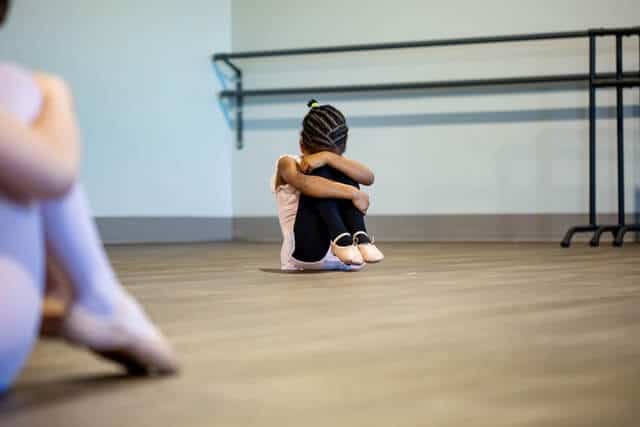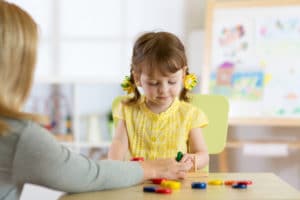As parents, sometimes it can be tempting to look at your beautiful child and wistfully say to yourselves, “Aah, kids have it so easy.”
You often think they don’t have bills to pay, jobs to go to, marriages to navigate and commitments they’re accountable for, therefore life must be easier, right?
So what would happen if your child was someone who wasn’t having it so “easy”?
What would you do if you child was struggling? And not in the familiar way that you, too, struggled as a kid, whereby there were certain hurdles to overcome that made life a bit tough sometimes.
What if your child presented with issues you had no idea how to face or even how to attempt to help them with?
Everyone experiences life differently. Even in a close-knit family dynamic, children can’t be expected to see the world through the exact same lens as their parents.
This is where Darwin child psychologist Barbara Kapser can help you find peace by giving your child the tools that they need to help them manage stressful, difficult situations.

Stress comes in different shapes and sizes
Children may experience anxiety, behavioural problems, learning difficulties and trauma throughout their young lives.
Where it gets complicated is that trauma isn’t necessarily classified as something as serious as childhood abuse, neglect or a significantly traumatic event. Trauma can simply be a situation whereby your child was severely impacted by experiencing or witnessing a certain event.
If you’re unsure which of these categories your children’s issues fall into, Darwin child psychologist Barbara Kapser can help you navigate this tricky terrain. Her psychology practice also offers registered assessments for dyslexia and associated learning difficulties.
Learn to let go
When considering what is in your child’s best interests your decision may be impacted by many aspects, including social conditioning, schoolyard expectations and your own personal beliefs, along with your home environment.
The best way to approach your child’s therapy is to step back and allow the process to unfold as naturally as possible.
Ms Kapser suggests, “Offering your child as much unconditional support throughout their counselling journey as possible will be the best way to support them.
“There are certain times in a kid’s life whereby they will face natural challenges. And while these challenges can seem insurmountable from your child’s perspective, they are usually fairly typical and quite common.”
The issue can sometimes relate to whether or not you have forgotten how that time in your own life felt, or you didn’t go through a similar situation. What can also occur is that your own childhood trauma is tethered in a place whereby you cannot see your child’s situation objectively.
This can influence how you manoeuvre through the situation and is one of the reasons that outside help can provide an objective platform upon which your child can learn new skills to help them cope and overcome their concerns.
It’s OK to ask for help
“No parent has ever been considered a ‘failure’ for wanting the very best for their children,” says Ms Kapser. “And no parent should ever be ashamed to acknowledge they are confused and unsure how to best deal with certain issues for their kids.”
As a local Darwin’s child psychologist, Ms Kapser has a mountainous wealth covering both professional and personal experience dealing with childhood concerns. A mother of two young boys herself, she is keenly aware of how healthy, mindful parenting can impact a child’s future outlook.
Professionally, she is also at the coalface of how ‘unhealthy’ patterns can impact a child’s present situation.
She recommends all parents, if they haven’t already seen the warning signs, to investigate their own feelings around their child’s responses, behaviour, and language, in order to ascertain whether or not their kid needs more than parental mentoring.
“And make sure you feel comfortable to reach out for extra help if you’re feeling a bit lost,” she advises.
Remember, kids are just kids
Childhood psychology is completely different to adult psychology. Children don’t assess concepts in the same way as grownups. Kids stall at certain enquiries that would typically lead to a flood of emotion from an adult.
Children do not and cannot understand the same responsibilities as a parent. Perhaps think of it like the grownup speaks Greek and, until their child has their own baby, they don’t understand one word of the Hellenic dialect.
“Within this metaphor is also the learning that you should not ‘expect’ your child to understand certain concepts that you yourself may think are really simple,” recommends Ms Kapser.
If you’ve been trying to help your child with the best advice you know and it doesn’t appear to be working, it can be of great comfort to know there is someone local in Darwin, who is a child anxiety specialist. And Ms Kapser has plenty of experience guiding parents through troubled waters, along with their children.
You want your kids to remain kids as long as they can. So helping to heft the weight of their worries, while empowering them to take accountability for some of what they’re facing can be hugely beneficial for the overall development of your precious children.
Depending on the age vs the outlook of your child, Ms Kapser can custom a therapy plan to give your child the valuable tools they need to build their own way over their obstacles.
These ‘lessons’ can be taught from any age, yet catching the issue before it seems insurmountable for your child is key.
Ms Kapser suggests that if you’re witnessing any kind of anxiety issues or behavioural concerns, speak to your children first. However, know that the sooner you can help the child get on top of their concerns, the better for their overall development.
- Contact Darwin child psychologist Barbara Kapser at Stepping Stones in Life Therapy Service on (08) 8985 6067 today to help reassure you regarding the mental healthcare of your precious children.










